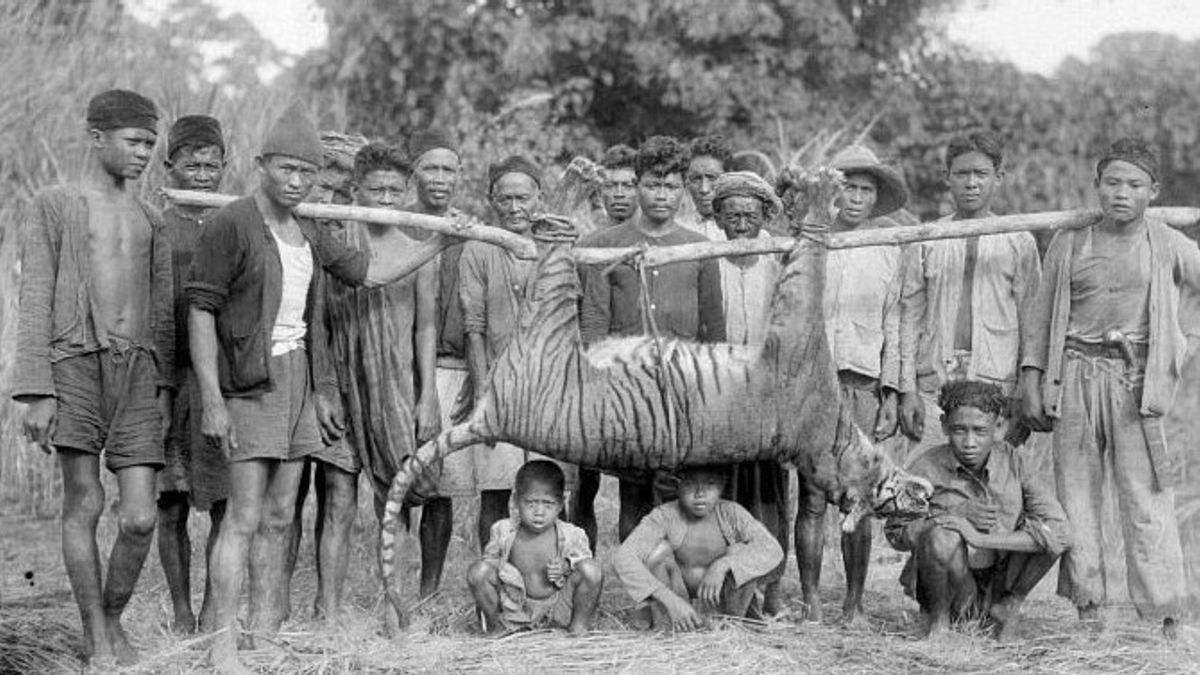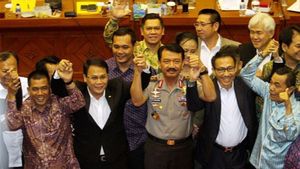JAKARTA - The success of the Dutch trading airline, the VOC to build a colony is second to none. Batavia city, his name. They built Batavia to adopt the comfort of housing in the Netherlands. However, the lives of Batavian residents in the early stages of Dutch colonialism were far from comfortable and safe.
Every day they are haunted by fear. Fear of being attacked by tigers, especially. The Amuk of wild animals often takes lives. In the end, the phenomenon of Batavians being attacked by tigers is considered a common occurrence, because they often use it.
Instead of immediately being big and magnificent, Batavia in the early stages of Dutch colonialism only occupied areas near the coast of Sunda Kelapa. The rest, Ommelanden or areas outside the Batavia fort are wilderness.
This fact makes the lives of the citizens of Batavia Dutch, Japanese, Chinese, and slaves covered by fear. Mainly, fear of being attacked by tigers. The fear was considered reasonable because tigers often roamed in Batavia. In fact, several times tigers appeared to be on the streets of Batavia.
The threat of tigers is not far-fetched. Many of the residents of Batavia were often victims of tiger flares whose territory was disturbed. In 1659, for example. Tiger footage is considered the estuary of the deaths of 14 slaves who were cutting trees around Batavia.
The news brings deep sorrow to all Batavian citizens. As a result, all Batavian residents do not dare to carry out activities outside the city. They are forced to enjoy the life in the city alone. If they say they dare to leave, the only risk they face is death.
To show how forests have been close to humans for a long time, it is enough to be reminded here that wild animals have survived in Java until the early 20th century. And until now, Westerners still imagine that the archipelago is full of wild animals.
"In the 17th century, it is still possible for tigers to roam the streets of Batavia, and one of the paintings left by Pastor Valentijn carefully illustrates Captain
Batavians who are victims of tiger ferocity often increase. Especially with the land clearing. The Company was furious because the threat of tigers was like usual because they were so frequent. They also got involved in using tiger hunting as a solution. Hunting options were the only most reasonable option at that time.
Anyone who manages to catch or kill a tiger will be given a gift in the form of money from a compensive cash. The prize items made all the residents of Batavia cooperate in hunting activities.
They even hunted up to Paviljoen Field (now: Banteng Field). Hunting activities are transformed into popular entertainment. Young people participate in hunting. Because, they can get two happinesss at once. First, entertainment. Second, money if successful in carrying the hunt.
However, hunting for tigers is not an easy matter. It takes special skills to successfully catch tigers. Moreover, Kasteel Batavia's Note says that massive hunting does not always get big results. Sometimes hunting only takes home empty hands.
Kasteel Batavia's daily record says that in the 1640s once a month there must be a tiger corpse shown on Kasteel's field. Because the threat of tigers has not stopped yet, the Head of the Judiciary Council Joan Maetsuycker decided in 1644 to lead the massive hunt himself.
For this reason, 800 people were deployed consisting of 20 horse riders, 100 soldiers, 50 slaves and the rest were Dutch citizens and natives, Chinese, Banda and Javanese. However, after combing the area for two days, the group was surprised because they did not find a tiger or other wild animal so that they returned to the city with a masygul (surgery)," said historian Hendrik E. Niemeijer in the book Batavia: Colonial Society of the XVII Century (2012).
The English, Chinese, Japanese, Arabic, and French versions are automatically generated by the AI. So there may still be inaccuracies in translating, please always see Indonesian as our main language. (system supported by DigitalSiber.id)










